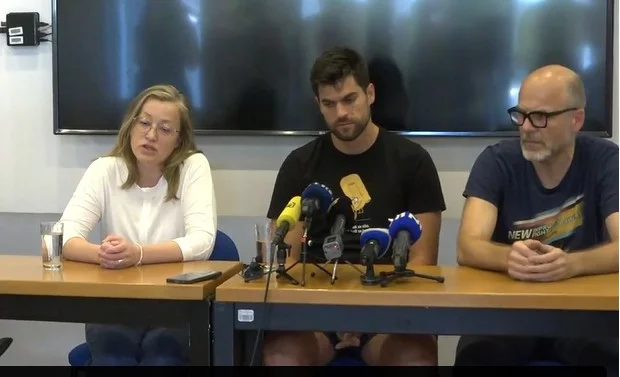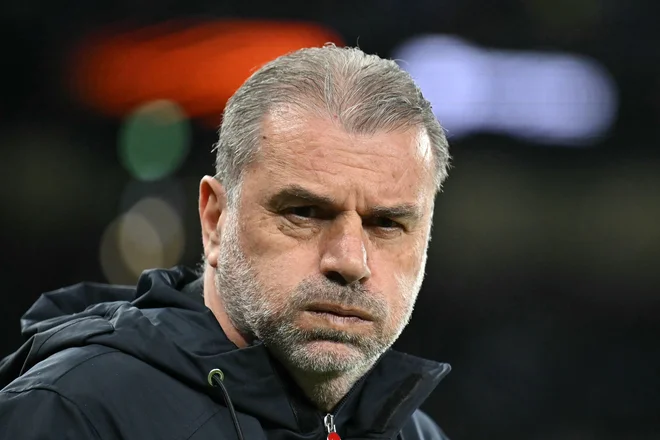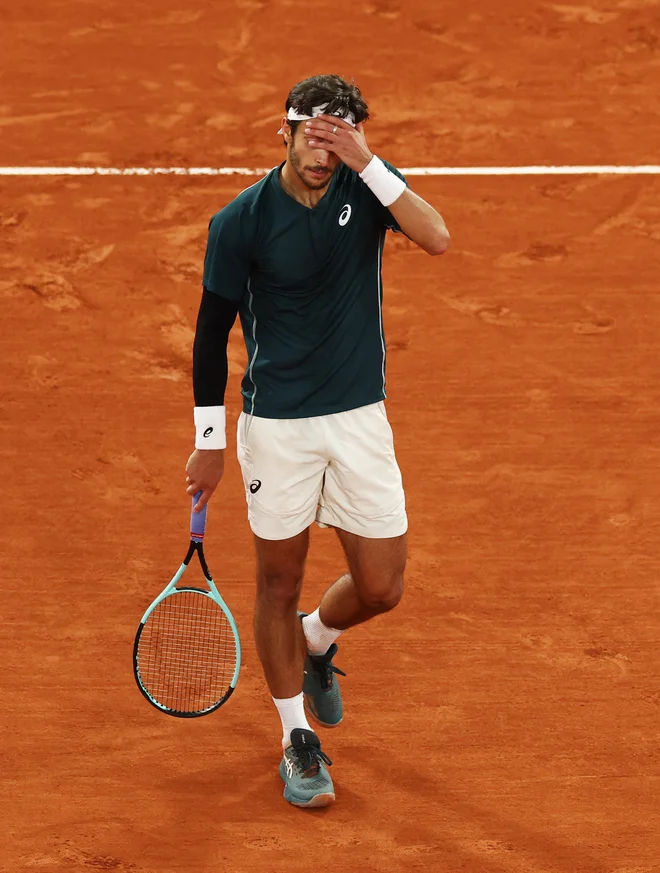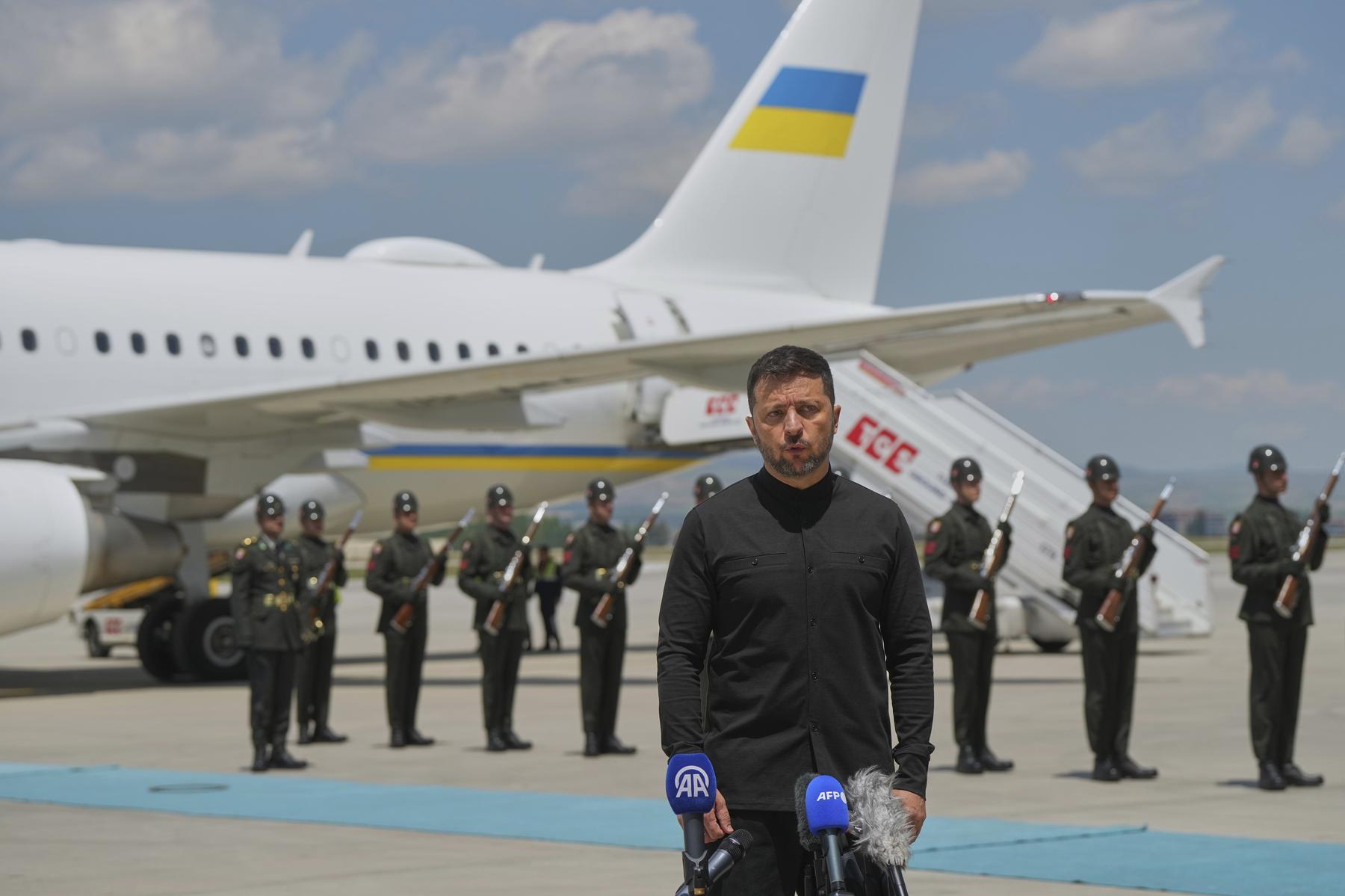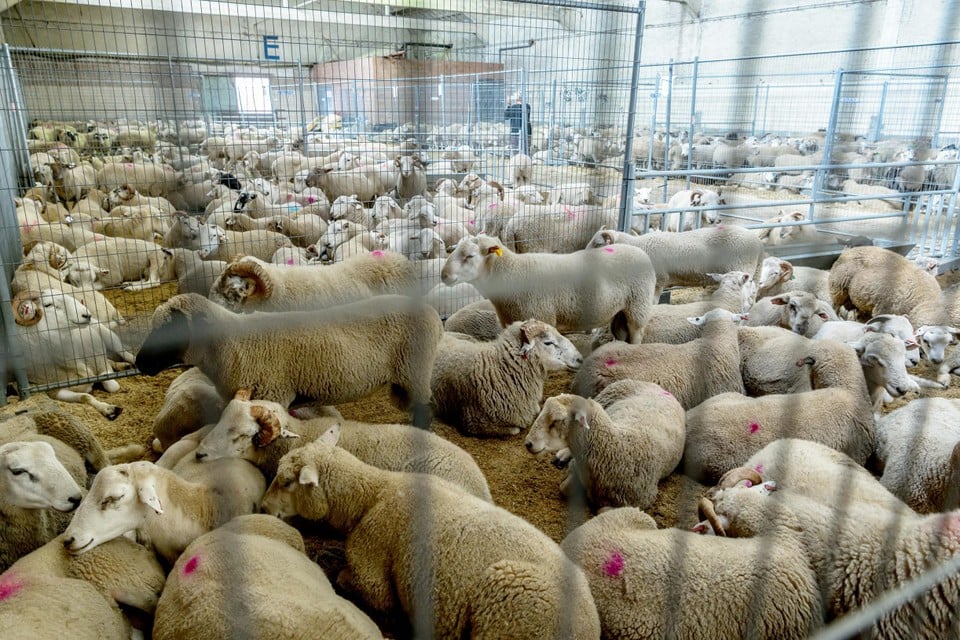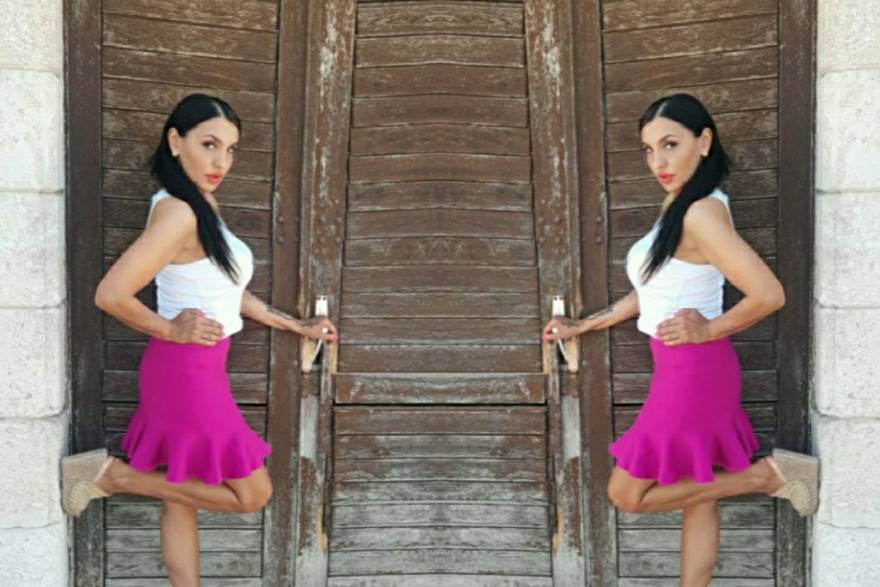Young Pen: Introducing eight critics
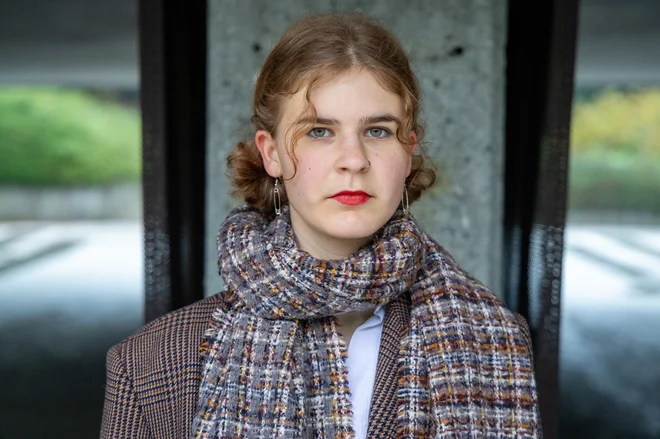
In the fifth season of the section A young penin which they are in cooperation with the office of Ljubljana, UNESCO Literature City in Work In addition to eight authors of poetry, prose and drama, eight literary critics presented themselves in addition to eight authors of poetry, prose and drama. One of them will be 23. On June at Rožnik received the Young Pero Award and will have the possibility of one -year publication of criticism in Work.
Lara Nia Matos
Photo: Voranc Vogel
Lara Nia Matos (2005)
“If the poet cannot believe in God with the capital letter, he gives holiness to his language – so it is not unusual for the poet to write about the loss of a common language. In the song We no longer speak the same language Due to the loss of the possibility of communicating with another person, the lyric subject no longer sees you. The poet materializes the word in the image of playing balls, a wonderfully unusual metaphor that works effectively and picturesque (…). It is not negligible that the poet creates a field of his own symbols, « wrote Lara Nia Matos, a comparative literature student at the Faculty of Arts in Ljubljana, about the poetry of Dorotheje Drevenšek.
Dominik Lenarčič
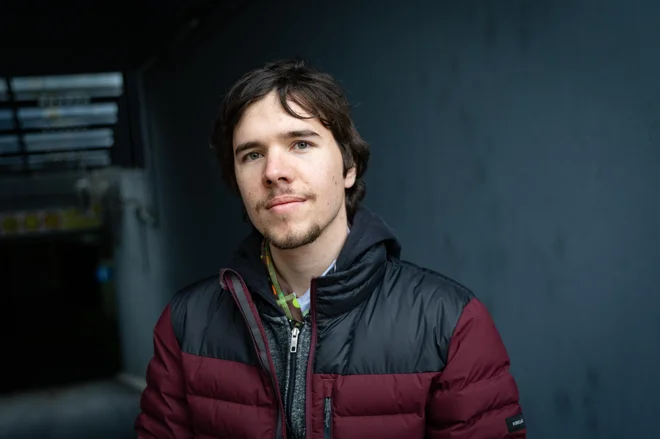
Photo: Voranc Vogel
Dominik Lenarčič (1999)
“While reading the poetic debut of Lara Gobec Ribbed blinds My thoughts are constantly returning to the water. I think about rivers that constantly wind in their travels in the hope that they will reach deep, but before spilling into the sea they rarely escape the shallow valleys. And I think about the sea whose wave is angry but weakly strikes the shore and then immediately escapes back into a comfortable blue. Strike and run away. He strikes and escapes, « said Dominik Lenarčič in his criticism, who studied librarianship at the Faculty of Arts in Ljubljana, and now writes reviews and other literary contributions for the portal Corridor – intersections of art.
Iva Katushin
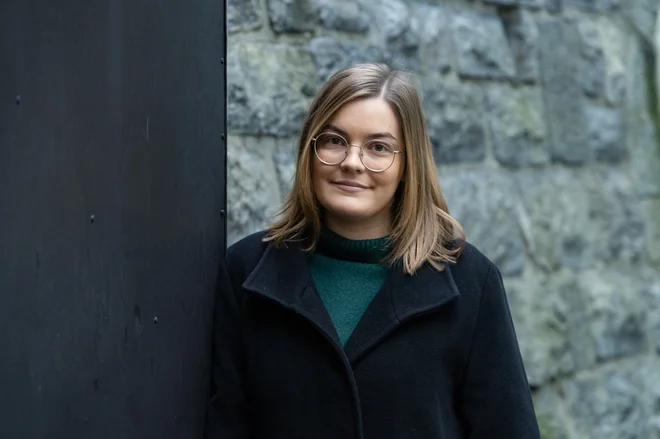
Photo: Voranc Vogel
Iva Katusin (2003)
“The poetry of Gala Grobovška are characterized by short free verses, mostly written in the prose style and conversation language, which is a softer in the use of metaphors, an example and other rhetorical means. Since the poet does not choose moments that would be poetic in themselves, poetry is also appropriate. (…) The narrative, almost reporting style, with a combination of slang and dialect, allows its content to be genuine and realistically, « wrote Iva Katusin, student of Germanic and comparative literature at the Faculty of Arts in Ljubljana, who deals primarily with writing film criticism for the magazine Screen and platform Corridor – Crossroads of art.
Jara Gostinčar
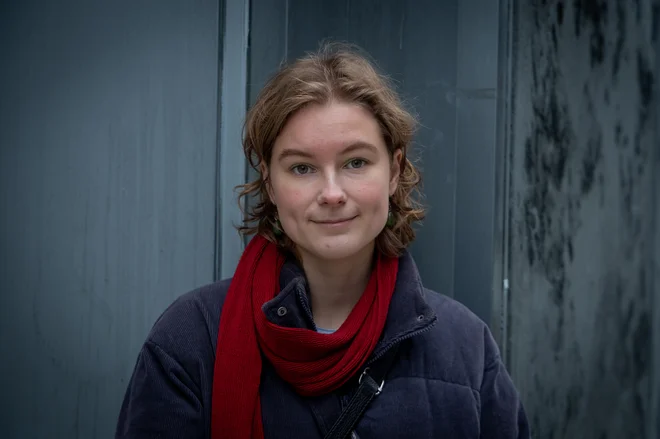
Photo: Voranc Vogel
Jara Gostinčar (2003)
“Manca Lipoglavšek courageously portrays dysfunctional family environments, the horror of teenage and consolation, which can only be brought by the destruction of the stubborn world. Its formal approaches are innovative and well -set. With concomitant events, the reinterpretation of fairy tales, or playing word games, she manages to show a distinct contrast between appearance, children’s prospects and a perverted reality, « said the author’s drama writing, a student of philosophy and comparative literature at the Faculty of Philosophy in Ljubljana, who publishes texts as a literary and film critic. Corridor – Crossroads of art.
Petruša Golja
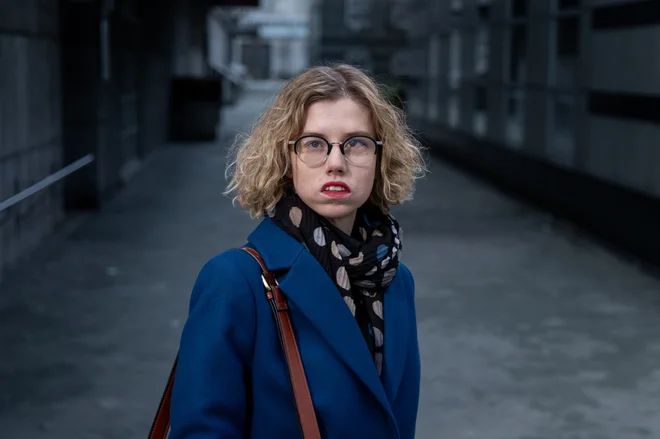
Photo: Voranc Vogel
Petrusha Golja (1998)
“The indications of the literary voice of Nejc Ledink Hovnik in both stories indicate the potential of living images and convincing characterizations. Based on the pessimistic vision of reality that moves in both stories between tragicism and banality (…), a picture of the human fate in their involvement in the wheel of the community, and at the same time in their individual psychological fragmentation, which the narrative as a thread of every stay tries to put into words and thus to conceive, « said Petrus Golja, who is currently graduating. He completes a master’s degree in England and Francistics, teaches and translates.
Ana Pikovnik
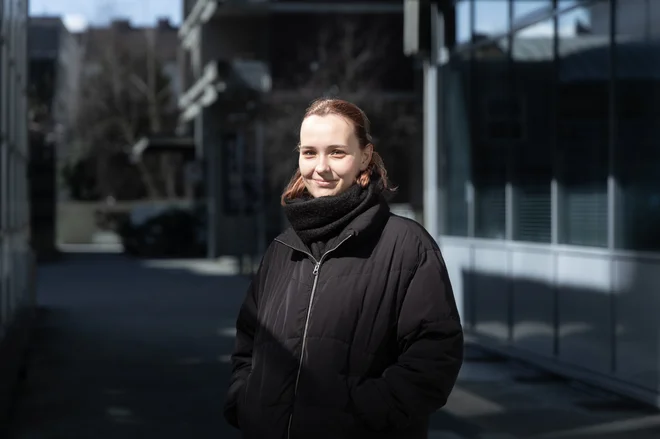
Photo: Voranc Vogel
Ana Pikovnik (2001)
“Manca Marinko does not use complex poetic means in a picturesque style, a song in a free verse with a vibrant rhythm, which, with strong descriptions, emphasizes the feeling of everyday life. With a tongue that is extremely purified, without exaggeration and unnecessary diples, it allows the reader not only to develop an empathetic relationship, but to identify with the subject itself, « wrote critic Ana Pikovnik in her hearing of the poet’s work, graduating from comparative literature and sociology at the Faculty of Philosophy in Ljubljana.
Tinkara V. Kastelic
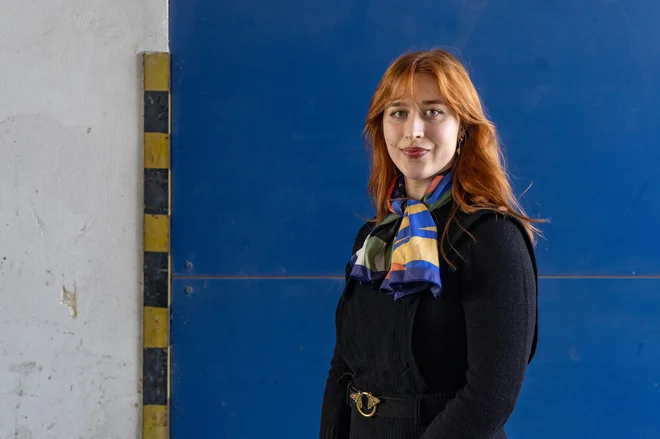
Photo: Voranc Vogel
Tinkara V. Kastelic (2001)
“Nike Matanovic’s writing works best when he takes advantage of the original motifs that connect and raise the narrative. If she pays a little more attention to the dialogues to break them out and make them more like a living speech, language style, to avoid too often heard terms, and all the main characters deal with deep enough, there will be no doubt that she is ahead of us who adds to the quality of Slovenian youth literature, » Comparative Studies and Anglistics and editor of the portal film editorial board Corridor – the intersections of art.
Kaja Rakušček
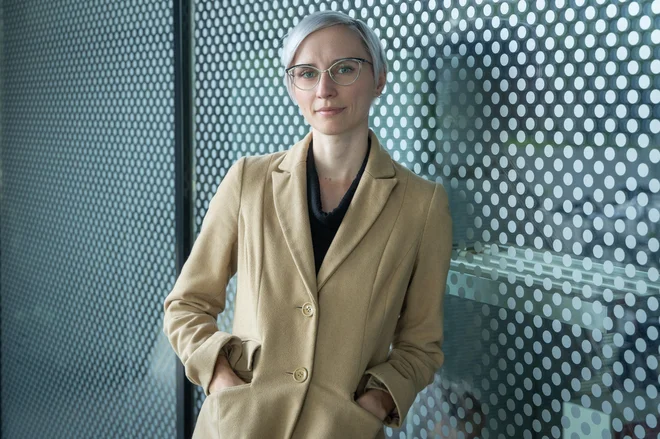
Photo: Voranc Vogel
Kaja Rakušček (1998)
“In the poetry collection A lull after the rain Ana Kumperger establishes a place of silence – not as a calm, but as a tension that hides between the rows, behind the door of the hotel rooms, in the yellow corners of the books or between skin contains. In the four chapters that make up the collection, the author moves through scattered images of intimacy, passing and oblivion (…). This is not the poetry of the reveals, but the latter follows – the meaning is not revealed in the written, but in what remains unspoken, in a slight restraint, in the silence that echoes behind the sentence, « said Kaja Rakušček, a cultural worker and a multidisciplinary artist active at the intersections of film and poetry.

